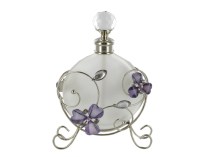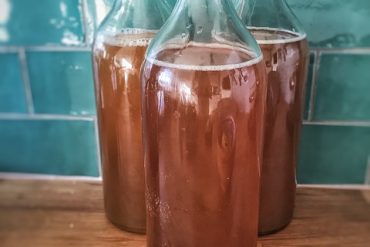According to the Massachusetts Nursing Association:
-There are 3,000-5,000 chemicals used in fragrances.
-95% of these chemicals are derived from petroleum.
-Over 80% of these chemicals HAVE NOT been tested for human toxicity
-Some of these chemicals are on the EPA hazardous waste list
-The perfume industry is not regulated by any government agency
-The perfume industry is not required to disclose the ingredients in fragrance. Fragrances formulas are considered “trade secrets”. This means that the fragrance industry does not have to reveal to you or anyone else the materials in the fragrance part of a product.
-The National Academy of Sciences targeted fragrances as one of the six categories of chemicals that should be given high priority for neurotoxicity testing.
Being Responsible for Your Actions
Every decision we make in life has an impact on other individuals and our environment. This includes using any scented products, regardless of its use. It is choice that many have unconsciously made, simply because they enjoy the scent of a product, and have no idea of the toxins used to create it. But if you’ve read any of the articles on this website, it is now a conscious choice. It is a choice to negatively impact the health of another individual, as well as the environment.
When I have brought this to the attention of someone wearing a fragrance, the comment I receive is that “I’m only wearing a little”. What people fail to understand is that to someone who has MCS, EI, or CI a little fragrance is too much. My analogy to people is that, “Saying you have a little perfume on, is like saying to someone in a wheelchair, it’s just one step, why is that a problem? ” When individuals with some form of EI are repeatedly exposed to fragranced products, their neurotoxicity becomes more severe with each exposure. Many people are also unaware of how many fragrances are used in daily products. Many just think of perfumes, after shave or air fresheners, but the list of products that are fragranced is quite extensive.
Here’s a partial list of things that are fragranced:
Cleaning products
Soaps
Lotions
Hairspray
Body Spray
Nail polishes
Make up
Hair coloring
Hair gels
Deodorants
Antiperspirants
Sunscreens
Window cleaners
Eye glass cleaners
Body powder
Diapers
Shampoos
Shaving products
Bath products-salts, gels, bubble baths
Carpet cleaners
It is important to realize that fragrances/chemicals affect not only those with MCS/EI/CI, but others who have weakened immune systems, such as the elderly, young children, individuals with lupus, respiratory disorders, general allergies and fibromyalgia to name a few.
For more information on what chemicals are used in fragranced product click here
Are You Chemically Sensitive?
After going to a public place, a store, someone’s house, or even walking outside have you experienced any of the following?
*Headaches
*Dizziness
*Brain fog (inability to think clearly)
*Slurred speech
*Burning around the mouth
*Itchy/ burning skin
*Swollen face or hands
*Respiratory Symptoms
*Coughing
* Have you been enjoying a walk in the neighborhood and found you have suddenly fallen without realizing why?
* Do you get a numb feeling on the side of your face—and the doctors can’t find the reason?
*Fabric softeners, like other fragrant products, contain petrochemicals, used in untested combination. These chemicals can adversely affect the central nervous system (CNS)—your brain and spine.
* CNS exposure symptoms include: aphasia, blurred vision, disorientation, dizziness, headaches, hunger memory loss, numbness in face, pain in neck and spine.
If you have experienced these symptoms, you may consider keeping a journal about what you do on a daily basis. Document where you have been and what you have eaten and note any symptoms. Over time you may notice patterns. Perhaps after a meeting, you feel unusually tired, or that it’s hard to concentrate. You may observe that after going to buy detergent you have a headache. These are important clues to note and discuss with your healthcare practitioner.
References:
Massachusetts Nurses Association 9MNA). Fragrance Free! Creating a Safe Health Care Environment. Courseserver.com 2007. http://www.courseserver.com/mna
http://www.nb.lung.ca/pdf/NoScentsMakeSense.pdf
http://www.ncbi.nlm.nih.gov/pubmed/9577937 Acute toxic effects of fragranced products
http://www.thedailygreen.com/environmental-news/latest/perfume-chemicals-toxic-0525
http://safecosmetics.org/downloads/NotSoSexy_report_May2010.pdf#page=1







